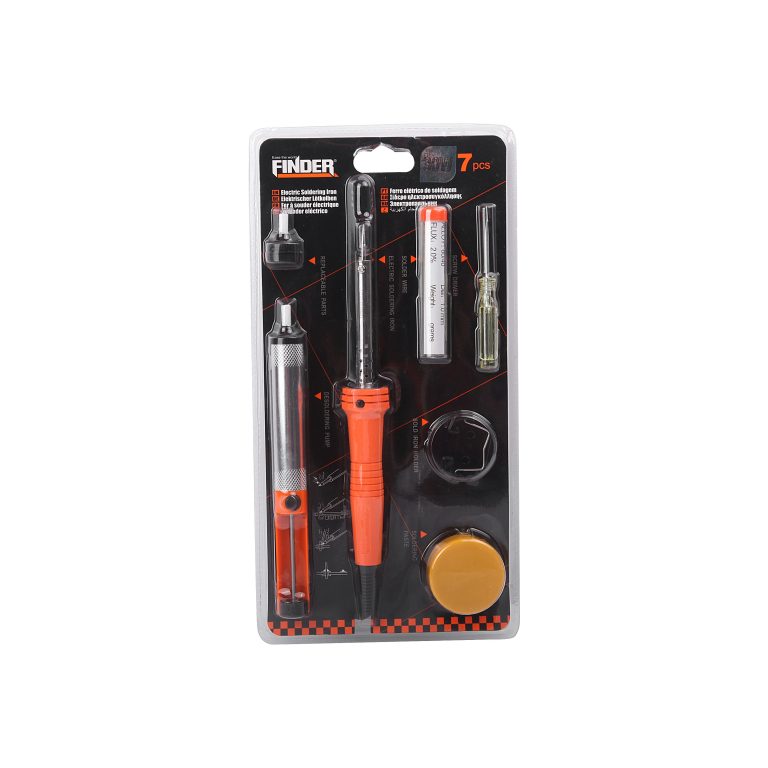Electric Soldering Iron Basics
Importance of Quality
When selecting an electric soldering iron, it’s crucial to prioritize quality and durability. A high-quality soldering tool ensures precision and reliability in various workshop applications. The durability of the electric soldering device directly impacts its longevity and robustness, making it a worthwhile investment for any professional or DIY enthusiast.

Quality and Durability
Assessing Quality
When evaluating the quality of an electric soldering iron, several factors come into play. Look for a durable and heat-resistant handle that provides a comfortable grip during prolonged use. The heating element’s material and wattage determine the tool’s ability to reach and maintain the desired temperature consistently. Additionally, consider the construction of the soldering tip, ensuring it is made of high-quality materials to withstand frequent use without corrosion or deformation.
Significance of Durability
Durability is a crucial aspect when choosing an electric soldering iron. It directly impacts the tool’s lifespan and its ability to withstand rigorous workshop demands. Different models vary in their robustness, with some designed for heavy-duty applications while others cater to more delicate tasks. Understanding the durability of each model helps in selecting one that aligns with specific workshop requirements.
Choosing and Using
Selecting the Right Model
When it comes to choosing the ideal electric soldering iron for specific tasks, several considerations come into play. Firstly, it’s essential to assess the size of the soldering iron in relation to the intended applications. A smaller, more compact model may be suitable for intricate projects that require precision, while larger models are better suited for heavy-duty tasks. Additionally, evaluating the temperature range is crucial. Different workshop devices require varying temperature settings for optimal performance, so selecting a soldering iron with an adjustable temperature range ensures versatility and usability across a wide range of workshop tools.
Effective Usage Techniques
Utilizing an electric soldering iron safely and efficiently requires adherence to best practices. Always ensure that the work area is well-ventilated to prevent inhaling fumes emitted during the soldering process. It’s also important to use appropriate safety gear such as heat-resistant gloves and safety goggles when operating the soldering iron. Furthermore, maintaining a clean soldering tip by regularly tinning it with fresh solder enhances its performance and longevity. Adhering to these effective usage techniques ensures optimal results across various workshop applications.
workshop tools
Accessories and Maintenance
Essential Accessories
When it comes to electric soldering, having the right accessories can significantly enhance the functionality and efficiency of the soldering process. One essential accessory is a soldering iron stand, which provides a safe place to rest the hot iron when not in use, preventing accidental burns or damage to work surfaces. Another valuable add-on is a set of different tips for the soldering iron, allowing for versatility in various soldering applications. Additionally, using a quality soldering flux aids in the soldering process by promoting proper adhesion and reducing oxidation on metal surfaces. Furthermore, heat-resistant gloves and safety goggles are crucial accessories that ensure personal safety while working with an electric soldering iron.
Proper Maintenance
Regular maintenance is key to extending the lifespan and ensuring optimal performance of electric soldering irons. One important maintenance tip is to keep the soldering tip clean by regularly wiping it with a damp sponge or brass wire cleaner to remove any accumulated residue. Additionally, applying a fresh coat of solder, known as tinning, helps prevent oxidation and maintains the tip’s effectiveness. It’s also essential to inspect the power cord and handle for any signs of wear or damage, replacing them if necessary to avoid electrical hazards. Lastly, storing the soldering iron in a dry environment and using a protective cover further contributes to its longevity.
soldering iron accessories
Advantages and Applications
Advantages of Electric Soldering
When it comes to soldering, electric soldering irons offer distinct advantages over other soldering methods. The precision and efficiency achieved with electric soldering make it a preferred choice for professionals and hobbyists alike. Unlike traditional soldering techniques that rely on open flames or chemical reactions, electric soldering provides precise control over the temperature, resulting in cleaner and more accurate solder joints. Additionally, the quick heating capabilities of electric irons save time and increase productivity in various workshop applications.
Versatile Workshop Applications
Electric soldering irons find versatile applications across a wide range of industries and workshop settings. From electronics repair and circuit board assembly to jewelry making and plumbing, these tools cater to diverse soldering needs with precision and reliability. The ability to work with various materials such as copper, brass, and aluminum expands the utility of electric soldering irons, making them indispensable in workshops dealing with different metalworking projects.
advantages of electric soldering
Choosing the Best Electric Soldering Iron
Key Considerations for Workshop Requirements
When choosing the best electric soldering iron for specific workshop needs, it’s essential to consider factors such as the intended applications, required temperature range, and the material being soldered. Assess the size and weight of the soldering tool to ensure it aligns with the tasks at hand, whether they are intricate or heavy-duty. Additionally, evaluate the temperature control features to guarantee compatibility with various workshop materials. The durability and reliability of the electric soldering device are paramount in meeting workshop demands effectively.
electric soldering iron: 1-2
soldering tool: 1-2
electric soldering device: 1-2
